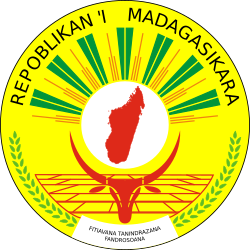 |
|---|
Parliamentary elections were held in Madagascar on 15 December 2002. [1] They were won by the Tiako i Madagasikara party of President Marc Ravalomanana, which took 103 of the 160 seats. Voter turnout was 67.86% of the 5,844,564 registered voters. [2]
